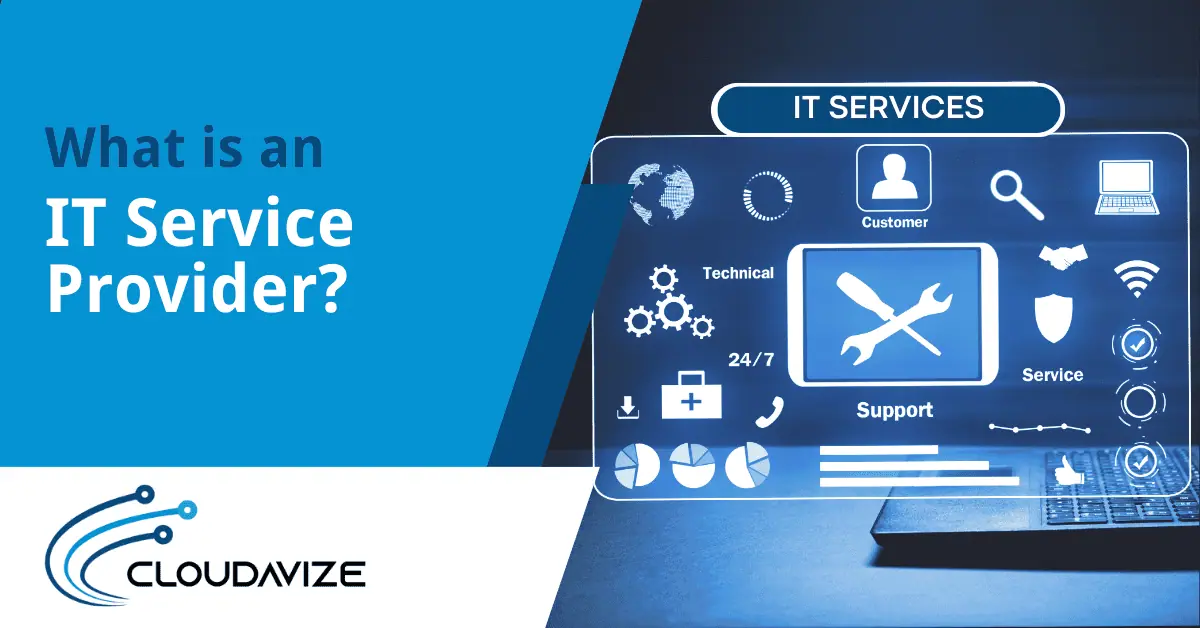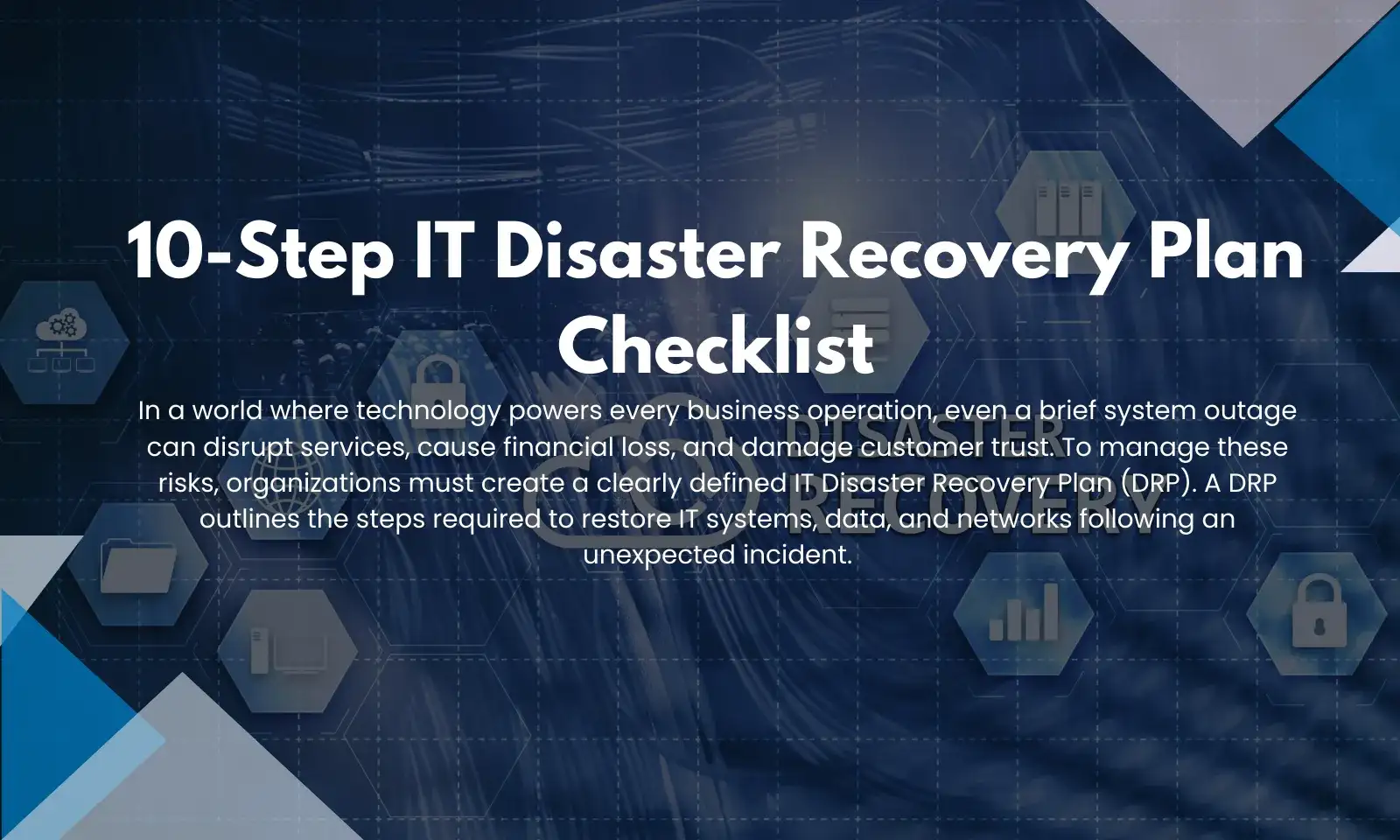An IT Service Provider is a firm that proactively provides technology-relevant services to businesses or individuals.
Types of IT Service Providers include:
- Consultation and Strategy
- Internet Service Provider (ISP)
- Cloud Service Provider
- Network and Cloud Security Service Provider
- Digital Adoption Service Provider
- SaaS Service Provider
- Hosting Service Provider
They offer a range of services, including IT management, cloud solutions, cyber solutions, cybersecurity, and digital transformational support, among other tailored activities. The sector, sometimes called Managed Service Provider (MSP), is critical in helping sustain, secure, and optimize the IT infrastructure. An IT Service Provider company’s role also includes managing, integrating, and backing information technology-focused systems, which promotes smoother operations, power storage, and efficient performance.
Choosing an IT Service Provider is critical for businesses because it helps them get the most suitable and effective IT solutions to meet their exact needs so they can grow in a protected manner with sound operational efficiency. Dataprise, Amazon Web Services, and Palo Alto Networks are among the most well-known IT service providers, supporting organizations of all sizes in contemporary technology environments.
Table of Contents
What Service Does IT Service Provider Offer?
IT Service Providers provide a comprehensive suite of services to address, manage, and proactively recover the IT infrastructure used by a company. The following are the seven essential services IT Service Providers offer:
- Managed IT Services
It includes managing and monitoring a business’s IT infrastructure, from scheduled maintenance and ongoing system updates to real-time monitoring and issue resolution. Managed IT services provider allow businesses to operate their systems smoothly while minimizing downtime and enhancing productivity.
- Cloud Services
IT Service Providers offer cloud services, including cloud storage, computing, and Software as a Service (SaaS). By adopting cloud services, companies can acquire elasticity and cost-effectiveness for data storage, application execution, and IT resource scaling. Cloud services support remote workforces, launch digital transformation initiatives, and decrease on-premises hardware requirements.
- Cybersecurity Services
This includes protecting IT systems and data from cyber threats. It includes services to reduce vulnerabilities, secure threat detection, prevent threats, and respond to lost security. It also covers configuring firewalls (encryption) and intrusion detection systems, helping businesses protect their operations and maintain data reliability.
- IT Consulting
IT Service Providers provide strategic consulting to businesses on optimizing their IT Infrastructure for better alignment with business objectives. IT consultancy covers building and infrastructure planning, along with the implementation of new technologies. The ultimate goal of IT consulting is to ensure that companies use the best tech solutions available to grow and stay ahead within their sector.
- Data Backup and Disaster Recovery
Ensuring your data is backed up regularly and can be restored immediately after a disaster strikes forms the primary foundation upon which IT Service Providers offer DBR services. This service protects enterprises from losing data during hardware failures, cyberattacks, or natural disasters. By employing disaster recovery solutions capabilities, businesses can continue to serve their customers without interruptions.
- Network and Infrastructure Management
Through this service, IT Service Providers manage and maintain physical and virtual networks, such as switches and firewalls, helping enhance business performance while improving security. It includes monitoring network security, tuning network performance, and ensuring all parts of your IT infrastructure operate harmoniously.
- Helpdesk and Technical Support
Another essential service these providers offer is a help desk and technical support to employees or customers who face IT-related challenges. The helpdesk focuses on troubleshooting and problem resolution, including user support, which is indispensable in resolving technical issues as quickly as possible to minimize disruption to business operations.
What Does the IT Service Provider Do?
An IT Service Provider performs various functions to manage, support, and enhance a company’s IT infrastructure. Here are the top responsibilities:
- Manages IT Infrastructure
Ensures that hardware, software, and network components are appropriately configured, maintained, and updated to meet an organization’s needs.
- Provides Technical Support
Addresses and fixes technical concerns to ensure all IT processes and systems function correctly.
- Implements and Manages Cybersecurity Measures
Implements cybersecurity measures to safeguard data and IT tools from threats and compromises.
- Delivers Cloud Services
Provides cloud services for data storage, computing power, and software packages that offer scalable IT resources as needed.
- Offers IT Consulting and Strategy Development
Provides expert advice and strategic planning to ensure IT investments align with business needs and enhance efficiency.
- Handles Data Backup and Disaster Recovery
Maintains regular data backups and formulates disaster recovery strategies to minimize the impact of disruptions or failures.
- Manages Networks and Connectivity
Directs and controls the creation or enhancement of network infrastructures to ensure a reliable and secure connection.
- Supports Software and Application Management
Oversees the installation, updates, and performance of business applications to ensure they work properly.
Types of IT Service Provider
IT Service Providers offer various services designed to address various IT needs. They are crucial for managing and optimizing technology infrastructure and helping businesses align with their objectives. The seven primary types of IT service providers are:
- Consultation and Strategy
- Internet Service Provider (ISP)
- Cloud Service Provider
- Network and Cloud Security Service Provider
- Digital Adoption Service Provider
- SaaS Service Provider
- Hosting Service Provider
1. Consultation and Strategy
Consultation and strategy providers provide expert advice to integrate technology with business objectives. They assist businesses in creating detailed IT roadmaps and planning for digital transformation. At its core, they are charged with ensuring that technology investments match up to business objectives and work toward driving increased efficiency and overall growth. These include creating IT strategies to make new technologies a part of day-to-day operations, ensuring that technology investments are adequately leveraged, and helping plan for future technological changes. This method allows businesses to be competitive, operate more effectively, and secure future success.
2. Internet Service Provider (ISP)
A good Internet Service Provider (ISP) is essential for connecting businesses to the Internet and facilitating services such as broadband, dedicated Internet access, etc. They provide enterprises with reliable, high-speed connections to keep critical processes flowing and access the cloud. There are several kinds of connections offered by ISPs catering to all sorts of needs and budgets, from DSL to cable modem lines, fiber-optic, or satellite. Businesses today find it hard to operate without internet connectivity, as they rely on a constant and consistent high-speed digital connection to keep their operations running uninterrupted and remain productive while using the apps and software programs that come with modern business practices.
3. Cloud Service Provider
A Cloud Service Provider offers services that can be utilized through the internet as storage, software (SaaS), and infrastructure (IaaS). It provides services that can be scalable and flexible, allowing businesses to manage their IT resources efficiently. Cloud services enable companies to access virtualized computing resources, software applications, and platforms on demand without significant upfront capital investment. For example, IaaS offers virtual servers and storage, SaaS provides software applications like CRM and office productivity tools, and PaaS allows the development and management of applications. This results in more operational flexibility, greater facilities for remote work, and more accessible adaptation to changing business needs.
4. Network and Cloud Security Service Provider
Network and cloud security services focus on safeguarding digital assets from cyberattacks. They perform threat assessments, manage risk, and ensure compliance with safety regulations. These services protect network and cloud environments from threats or vulnerabilities. Network security is used to secure data and protect against unauthorized access and cyberattacks, while cloud security protects an organization’s cloud-based applications (data) within a local network or through the web. These providers implement strong security measures to prevent data leaks of business particulars or sensitive documents, ensuring that safety and confidentiality standards are met under strict regulations from different regions.
5. Digital Adoption Service Provider
A Digital Adoption Service Provider helps organizations successfully implement and use new technologies. By providing the platforms and infrastructure that enable digital tools to be embedded, they help secure a return on technology investment across an organization. For example, digital adoption platforms guide users through digital tools during technology rollouts and change management services that assist with transitioning to new systems. Businesses leverage this support to optimize technology investments, enhance user engagement, and generate operational improvements.
6. SaaS Service Provider
SaaS Service Providers provide software applications in the cloud as a service with subscription value. This pay-as-you-go model enables businesses to access software remotely without the large initial outlay or long-term commitment of traditional license contracts. One of the fundamental benefits of SaaS is its flexibility and scalability, granting companies instant access to the latest software features and updates. SaaS providers allow companies to use the most up-to-date software and reduce IT overheads while maintaining operational agility.
7. Hosting Service Provider
Hosting Service Providers offer numerous web hosting solutions that help companies to work online. Depending on the requirements, this includes shared hosting, dedicated servers, and cloud hosting options. Shared hosting is less complex, cheap, and easily operable for smaller sites, but you need exclusive resources like a dedicated server when the site has high traffic. Likewise, Cloud hosting allows you to scale up and down to meet your requirements. Every site has to be hosted somewhere, and a reliable host is crucial for your website’s performance and ability to maintain an online presence and support business operations.
Why Do Companies Require IT Service Providers?
Companies require IT Service Providers to manage their IT resources with expertise and experience, allowing the business to reduce costs, enhance security, and support growth. They manage complex digital transformation and tasks of businesses to help them remain competitive in the market. Here are the key reasons explaining why partnering with IT Service Providers is crucial:
- Expertise and Experience:
IT service providers offer expertise, specialized knowledge, and experience across all IT areas. This ensures that solutions are technically sound and strategically aligned with business objectives. This includes improving IT infrastructure or building software tailored to specific workflow requirements for operational efficiency, extending human capacity, and reducing errors.
- Cost Efficiency:
MSPs help optimize IT spending by offering scalable services and subscription models. This eliminates the need for a large in-house IT team, saving high costs. Businesses benefit from lower upfront investments in flexible pricing and on-demand services. It allows the companies to optimize their capital for better resource allocation and cost management.
- Security:
Providers reinforce their security features and data protection practices to secure business operations. It involves performing security reviews, implementing means to detect threats, and meeting all relevant security compliance. This proactive approach helps to avoid data breaches and maintain business continuity.
- Scalability:
IT Service Providers offer scalable solutions that address constant changes in your business needs. They provide services like cheaper cloud storage and bandwidth adjustments, helping your company scale without requiring significant capital outlays. This allows organizations to assess the needs of their markets and promptly respond to market demands and opportunities.
- Proactive Maintenance:
Providers perform proactive maintenance that includes checking, updating, and optimizing systems. This helps minimize issues before they affect work operations and saves downtime, ensuring reliable IT performance. Tasks like patch management and system backup are part of the routines needed to keep systems running smoothly.
How to Choose the Right IT Service Provider?
To choose the right IT Service Provider, evaluate your IT needs and search for a provider whose services align with your business goals. Explore their track record, expertise, financial models, and service agreements to ensure they can fulfill your needs and align with your business objectives.
- Understanding Your IT Needs
Before hiring an IT Service Provider, analyze your current infrastructure deeply to identify gaps and inefficiencies that require enhancement. Understanding specific needs, such as cloud services, cybersecurity measures, data management, and software solutions, is essential. This will help you choose a provider that suits these demands and provides solutions to improve operational efficiency.
- Researching Potential IT Service Providers
Finding the best IT service provider becomes easier when you know what to look for. Research their service spectrum, industry reputation, and case studies to gauge their experience and potential for success. Read online reviews, user testimonials, and industry forums to understand customer satisfaction levels and what kind of service provider you can expect. This in-depth review helps you make an informed, unbiased decision based on good and bad feedback.
- Evaluating Expertise and Reliability
Determine if the provider is skilled in specific IT areas relevant to your business needs. Ensure they stay updated with new technology trends and offer innovative solutions based on their experience. The provider’s commitment to continuous learning and adaptation is essential to staying ahead and developing innovative solutions that fulfill your business objectives.
- Financial Considerations
Consider the financial aspects of engaging an IT Service Provider. Look for longevity in a managed service provider, overall cost value, and return on investment (ROI). Seek out transparent pricing to avoid overpaying. Evaluate cost-saving opportunities in strategic IT outsourcing and ensure the financial setup aligns with your budget while meeting your business needs.
- Contract Review and SLAs
Examine contracts and Service Level Agreements (SLAs) to determine service scope, roles and responsibilities, and key performance indicators. Concrete terms regarding response times, resolution procedures, and escalation paths are critical to deciding trustworthy IT support. By defining these aspects in SLAs, you set expectations and secure the necessary level of service for your business processes.



